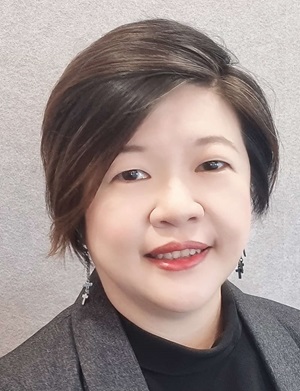Singapore’s AI growth: A game changer for talent management
- Josephine Tan

Singapore continues to cement its status as a major player in the global AI landscape, as OpenAI—the creator of ChatGPT—announced the opening of its second Asia office in the city-state. The expansion underscores Singapore’s leadership in technology innovation and its growing role as an AI hub in the Asia-Pacific region.
For Ksther Lim, CEO and CHRO of The People Decoder, OpenAI’s expansion signifies a pivotal moment. “OpenAI’s move highlights just how much generative AI is poised to impact industries—whether it’s finance, healthcare, education, or logistics. For me, this positions Singapore as an incredibly attractive place for high-tech innovation and talent growth,” she told HRM Asia.
With global AI players, including Google and Meta, also ramping up their presence in Singapore, the country is solidifying its reputation as a magnet for AI talent and innovation. However, the impact of this AI influx goes beyond technology firms. It promises to reshape how organisations manage talent, address workforce challenges, and upskill employees for the future of work.
Generative AI’s integration into the workforce is poised to benefit organisations across all sectors. Lim emphasised that AI is not just a tech trend—it is an opportunity to rethink how organisations plan for the future. “AI allows organisations to scale faster, help employees learn intuitive skills, and focus on less physically strenuous tasks. The message is clear: Invest to see the real ROI,” she said.
Despite its potential, AI adoption presents challenges, especially for midcareer and older employees. A report by Generation, a global employment non-profit, highlighted concerns about ageism in AI-related roles. According to the report, 98% of hiring managers in the US prefer candidates under 35 for AI roles, while only 32% consider those over 60. Europe saw similar trends, amplifying the age bias.

“AI can make tasks ‘age-less’, where the mastery of technology, not age, defines capability,” – Ksther Lim, CEO and CHRO of The People Decoder
Lim, however, remains optimistic about the future, believing AI can foster intergenerational collaboration. “Rather than viewing employees through an ageist lens, the focus should be on how AI can enable everyone to work better. AI can make tasks ‘age-less’, where the mastery of technology, not age, defines capability,” she noted.
Singapore’s leadership in AI is not just about attracting organisations like OpenAI; it is also about preparing the workforce to thrive in this new landscape. Initiatives such as the TechSkills Accelerator (TeSA) are key to ensuring the local workforce is ready for the digital transformation ahead. Lim believes this alignment will set Singapore apart as an AI powerhouse, and added, “Singapore’s workforce should now seize the opportunity to master generative AI and fully embrace digital transformation.”
READ MORE: Bridging trust key to leadership success in the age of Generative AI
Lim is confident that AI will drive not only efficiency but also inclusivity and creativity in the workplace. “AI is a tool to make more efficient, creative, and inclusive. It’s not about age. If we harness AI to its full potential, it becomes age-agnostic. AI can simplify work processes, and that’s something everyone—no matter their age—will benefit,” she concluded.
For more news and analysis on the latest HR and workforce trends in Asia, subscribe to HRM Asia and be part of the region’s largest HR community!






